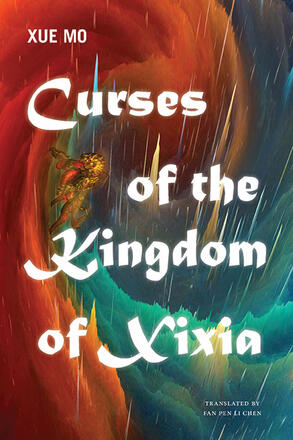
Curses of the Kingdom of Xixia
Alternative formats available from:
Reality merges with illusion in this novel of northwestern China.
Description
Finalist for the 2023 Foreword INDIES Book of the Year Award in the Multicultural Fiction category
Xue Mo's novel Curses of the Kingdom of Xixia presents a rich tapestry of the history, religion, lore, and customs of a region in present-day northwestern China. During its heyday, the Sino-Tibetan kingdom of Xixia (pronounced see-sia; 1038–1227), also known as the Tanguts, rivaled the Song dynasty (960–1279) of China and boasted a cavalry so formidable that the Chinese paid tribute to it to maintain peace. Using the discovery of "lost" manuscripts as a frame, the novel presents historical events and tales of semifictional characters, including the avatar of a local Tantric Buddhist goddess, a Dakini/Vajrayogini named Snow Feather. Taking the readers through different historical times and the various geographical and cultural spaces of the region, Xue Mo reveals truths by blurring the distinction between good and evil, beauty and hideousness, reality and fiction, permanence and impermanence. Magical realism and mimesis coexist. Reality merges with illusion, the mundane with the supernatural.
Xue Mo, the pen name of Chen Kaihong, was born in Liangzhou, Gansu province. The author of many works of fiction, poetry, and prose, he is a six-time winner of the Dunhuang Literature and Art Award and has been nominated three times for the Mao Dun Literature Prize. Fan Pen Li Chen is Associate Professor of East Asian Studies at the University at Albany, State University of New York. She is the author of Chinese Shadow Theatre: History, Popular Religion, and Women Warriors. Her previous translations include Journey of a Goddess: Chen Jinggu Subdues the Snake Demon and Marionette Plays from Northern China, both also published by SUNY Press.